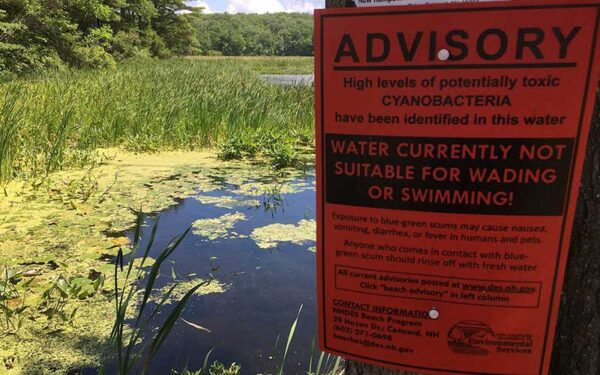
Groundwater pollution is putting New England waters, like Cape Cod's iconic bays, at risk. So why does EPA Administrator Pruitt seem to want to weaken protections that hold polluters accountable? Photo: EcoPhotography
Once again, EPA Administrator Scott Pruitt and the Trump administration are taking aim at one of our most vital and effective environmental laws. On February 20, 2018, the Environmental Protection Agency issued a public notice asking for comments on the Clean Water Act’s coverage of pollution that enters our nation’s lakes, rivers, and oceans via groundwater.
Is this an attempt by Pruitt to please his industry allies? It sure looks like it.
As it stands today, polluters can be held accountable by people like you when the pollution they release into groundwater makes its way to surface waters like rivers, lakes, and streams. EPA refers to this as a “direct hydrologic connection.” To paraphrase an applicable federal court ruling, it would hardly make sense for the Clean Water Act to cover pollution from a pipe into a river, but not pollution that seeps through groundwater into that same river.
But Pruitt’s industry friends disagree. Despite Congress’s clear intention that the Clean Water Act ensure the health and safety of our nation’s waterways, they’d prefer to pollute our waters and not be subject to Clean Water Act regulation.
Why is Pruitt acting on this now?
On February 1, 2018, the U.S. Court of Appeals for the Ninth Circuit delivered an environmental victory on this very topic. The Court determined that if a pollutant discharge is “fairly traceable” from the discharge site to the waterbody through groundwater, then it is effectively the same as a pollutant being discharged directly through surface waters. In other words, it shouldn’t matter if pollution is dumped directly into a waterway or if it’s released into the ground first – polluters should be held accountable either way.
So what’s at stake if Pruitt has his way?
For one, our coastal waterways and beaches. Take Cape Cod, for example. Weakening the power to fight this pollution will only worsen the current disaster facing the Cape’s iconic waters due to nitrogen pollution. Nitrogen from septic systems and sewers directly enters groundwater and then seeps into the lakes, rivers, and bays where we swim and fish. This excess nitrogen causes toxic algal blooms, endangering humans and wildlife and shutting down beaches during the summer. CLF has a long-standing commitment to protecting Cape Cod’s waters and is planning even more action to protect them in 2018.
Here’s how you can help
Submit comments to EPA (identified by Docket ID No. EPA-HQ- OW-2018-0063), on or before May 21, 2018.
Tell EPA to recognize the inherent connection between groundwater and surface water and to not allow discharges via groundwater migration to escape Clean Water Act regulation. For the health of people and our environment, we need to strengthen water protections, not weaken them!




